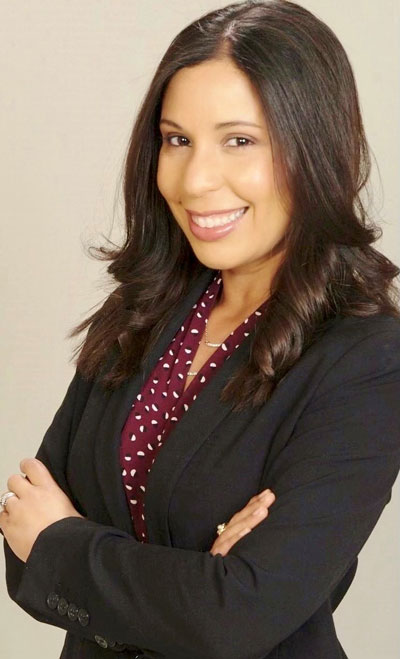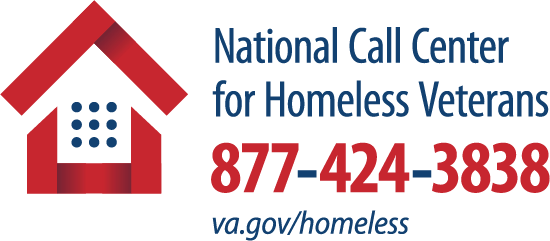VA Homeless Programs
HPO Staff Spotlight: Q&A with Monica Diaz | April 12, 2021
April 12, 2021
Professional and Personal Experiences Shaped HPO Executive Director Monica Diaz's Commitment to Serve Veterans Experiencing Homelessness
 Monica Diaz joined HPO as Senior Executive Director after serving as the Skilled Nursing Facility Administrator at the California-Yountville Veterans home, the largest in the state, from 2012-2018. At Yountville, she advised senior executives and interdisciplinary professional teams on patient quality-improvement programs, financial and clinical best practices, and organizational culture change strategies. Year-over-year improvements increased Yountville's CMS 2-star rating to a 5-star rating, placing it in the top 10% of nursing homes in the U.S. In the following interview, Mrs. Diaz shares how her personal experiences and professional background led her to HPO and shaped her commitment to ensure Veterans experiencing or at risk of homelessness received rapid, integrated supportive services that helped them rebuilt their lives.
Monica Diaz joined HPO as Senior Executive Director after serving as the Skilled Nursing Facility Administrator at the California-Yountville Veterans home, the largest in the state, from 2012-2018. At Yountville, she advised senior executives and interdisciplinary professional teams on patient quality-improvement programs, financial and clinical best practices, and organizational culture change strategies. Year-over-year improvements increased Yountville's CMS 2-star rating to a 5-star rating, placing it in the top 10% of nursing homes in the U.S. In the following interview, Mrs. Diaz shares how her personal experiences and professional background led her to HPO and shaped her commitment to ensure Veterans experiencing or at risk of homelessness received rapid, integrated supportive services that helped them rebuilt their lives.
Q: What in your background led you to join HPO as the executive director?
A: My love and admiration of Veterans is personal. Both my grandfather and my spouse of 16 years are Veterans. As the wife of a deployed servicemember, I witnessed the dedication of the men and women in uniform to our country, and like all members of a military family, I willingly made sacrifices to support their service. I also know what it feels like to face the risk of hunger and homelessness. During the recession, I was unemployed and needed to rely on social services to help me through financial hardship. The support provided at the community level gave me the safety net to weather this personal crisis and move forward.
Because of my grandfather, I took a job in a skilled nursing facility, where I cared for many elderly Veterans, some of whom were homeless. This led me to contact the Department of Veterans Affairs to learn about available benefits and services. In 2012, California Governor Jerry Brown appointed me to be the Skilled Nursing Facility Executive Director at the California-Yountville Veterans Home, the largest Veterans home in the state. During my 5-1/2 years at Yountville, we cared for approximately 1,000 Veterans at all levels of care, almost all of them homeless, providing social, mental health, nursing, medical, and holistic services. My work along with my personal relationships and experiences stoked my passion for serving Veterans and ensuring they always had a safe, secure place to call home.
Q: What is the one thing you want stakeholders and Veterans to know about you?
A: My work with HPO is more than a job. I strongly believe that caring starts from the heart. We tend to look at government programs to fix problems, but solutions come from what each of us does to change lives. All of us need to take responsibility for ending the national tragedy of Veteran homelessness.
Q: What are some of the approaches you use as a leader to move the Homeless Programs Office forward?
A: My approach is one of service. I truly believe solutions to homelessness come from the field and at the community level. That's why, along with providing guidance to the field, I generate support across VA for community-based solutions that successfully transform policies into real-world outcomes. I also am an advocate of making decisions based on data. Today, we have better data on the populations of Veterans experiencing or at risk of homelessness and on the policies and programs that do and do not work. This data was instrumental in our development of HPO's 2021-2025 strategic plan.
Q: Can you tell us a little more about HPO's strategic plan and how it was developed?
A: While HPO has operated successfully using a variety of strategic documents and goals, we determined that a singular plan would unite VA, HPO, and stakeholders' objectives and provide a clear roadmap for attaining them. We held a series of meetings with homeless program staff and stakeholders where we identified many co-existing issues such as race and equity, suicide risk, aging, and the pandemic that increase Veterans' vulnerability to becoming homeless and defined six key objectives we wanted to meet over a five-year period. The plan aligns with national goals for ending homelessness in the U.S and provides new interventions and strategies such as focusing on communities to prevent Veteran homelessness, increasing racial equity in program access, and enhancing rapid rehousing. HPO will use the plan to guide our policy decisions and actions, allocate resources; and ensure our program goals and priorities are realistic, on track, and meet Veterans' needs. Because the plan is a living document, we will regularly revisit and update it based on data that shows program strengths; population changes; innovative approaches, gaps in services; or political, social, or national events that either increase Veterans' risks or enhance opportunities to exit homelessness.
Q: Where can readers go to learn more about the Strategic Plan?
A: The Strategic Plan is available on the Veterans Experiencing Homelessness website. It can be viewed and downloaded at https://www.va.gov/homeless/strategic-plan.asp.
Q: What impact will new legislation have on HPO programs, stakeholders, and Veterans?
A: Recent legislation has removed many of the barriers to permanent housing often encountered by Veterans and their families facing a housing crisis and expands their access to housing, health, mental health, employment, and financial services. For example, under the Veterans Health Care Benefits Improvement Act of 2020, VA is authorized to use funds to provide food, shelter, and transportation to Veterans experiencing homelessness during a public health emergency. VA's Grant and Per Diem (GPD) program received an increase in its nightly rate, giving local providers the extra funds needed to continue caring for Veterans, and GPD grantees are now eligible to receive a nightly rate for each minor dependent under the care of a Veteran. Also, the law adds new flexibilities to GPD capital grant awards during the public health emergency that will encourage the development of individual transitional housing units. This same legislation gives VA's Veterans Justice Program the authority to award grants to organizations to provide legal services to Veterans experiencing or at risk of homelessness, helping eliminate legal barriers that some Veterans face when trying to obtain or maintain housing. The National Defense Authorization Act of 2021 expanded eligibility for the HUD-VASH program so that more Veterans have access to housing vouchers. Further, the law allows VA to provide legal services to Veterans and their families, and surviving children or spouses if the Veteran has died. These recent laws demonstrate a national resolve to prevent and end Veteran homelessness. As HPO moves forward, we will continue to build on the innovative housing, integrated health care, and case management services implemented during the pandemic and through new legislation and maintain our focus on Housing First principles and evidence-based solutions. The lessons learned, the strong collaborative relationships among programs and stakeholders, and flexibility and adaptability of our program staff are now woven into HPO's culture and processes, moving us closer to fulfilling the objectives in the strategic plan.
More Information
- Veterans who are homeless or at risk of homelessness should contact the National Call Center for Homeless Veterans at 877-4AID-VET (877-424-3838).
- For information and updates on VA's programs and supportive services for Veterans who are homeless or at risk of homelessness, subscribe to receive HPO's monthly newsletter.
- Visit the HPO website to view and download the 2021-2025 HPO Strategic Plan.

















